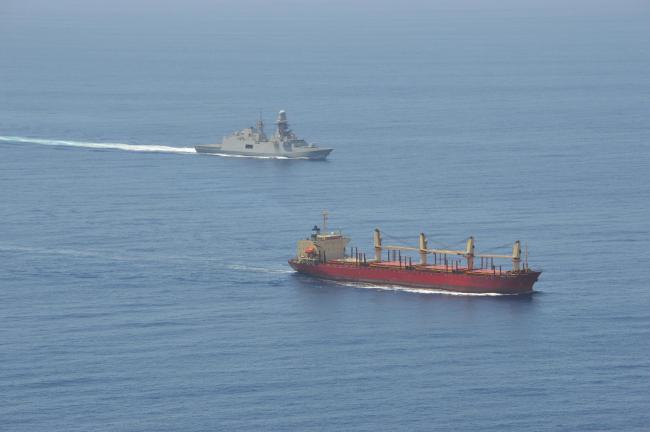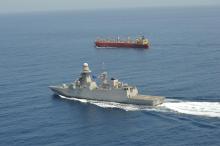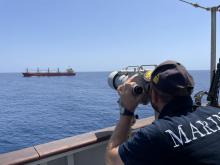The United Nations World Food Programme (WFP), being the largest humanitarian organization in the world, provides aid to people in emergencies in more than eighty countries globally. Although its name may imply otherwise, in many cases the WFP meritorious action goes well beyond just addressing basic food needs, with a wide range of activities and initiatives aiming at building and restoring the resilience of people to disasters. One of the countries where WFP is very active is Somalia. Social insecurity and recurring natural disasters have created a long-standing crisis requiring humanitarian assistance. Most of the goods and equipment provided by WFP worldwide are delivered through maritime routes. In the Horn of Africa, the access of international humanitarian aid can be challenging due to the risk of attacks and hijacking by hands of pirates.
Launched in 2008 by the European Union, Operation Atalanta’s core task is to deter, prevent and repress acts of piracy off the coast of Somalia, but it also includes the protection of World Food Programme chartered vessels sailing across the area of operation, which includes the sea routes of the Horn of Africa.
Since 2009, EUNAVFOR Somalia has been responsible for the protection of World Food Programme vessels, ensuring that millions of tonnes of aid destined for the Somali people could be delivered safely to Somali ports. Hundreds of WFP vessels have been closely monitored or escorted by EUNAVFOR Somalia warships. The provided level of protection is based on a detailed risk assessment process and coordination with the shipping companies. The last direct escort was conducted on 28th and 29th of June, by Italian frigate Carabiniere, the current flagship of EUNAVFOR Somalia, who escorted the merchant vessel ‘Best Voyager’ through the Gulf of Aden to the Somali port of Berbera.
World Food Programme operates several vessels for single long-haul voyages. One ship, which is routinely contracted for long-term shipping services within the area of the Horn of Africa, has a permanently embarked EUNAVFOR Somalia Autonomous Vessel Protection Detachment (AVPD) – a maritime security military team on board the vessel to provide protection to the ship 24/7 and expanding the range of effectiveness of the European Naval Force. An AVPD from Serbia recently replaced the Lithuanian team on board the current chartered vessel MV SPIEKEROOG.
Although the number of pirate attacks against merchant ships off the Somali coast has decreased drastically in the last years, the problem has not yet been eradicated. The renewed mandate for Atalanta – extending the operation to the end of 2022 – underlines the importance of the presence of the European Union Naval Force in this complex area to ensure freedom of navigation and provide security at sea. EUNAVFOR Somalia has a 100% rate of success in providing protection to WFP in the Horn of Africa, and we are fully committed to maintaining it.
Rear Admiral (LH) Luca P. Esposito, Force Commander CTF 465


